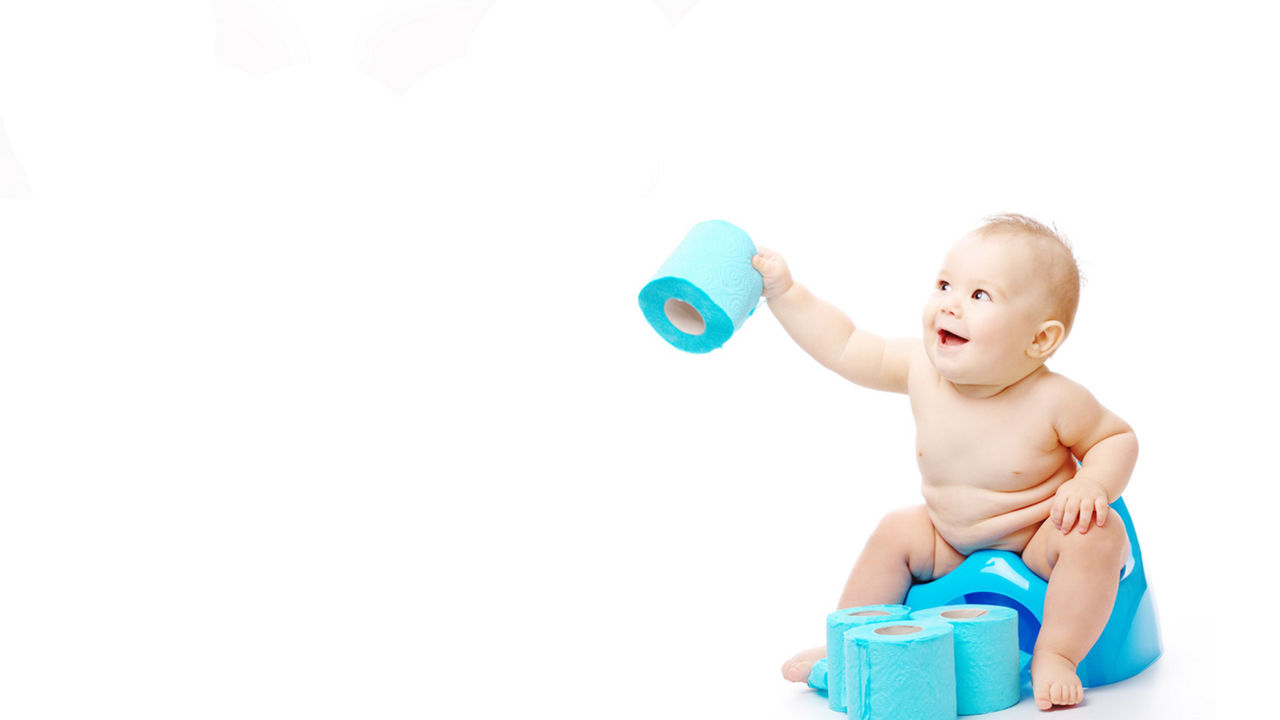Breastmilk is the best for babies. The World Health Organisation recommends exclusive breastfeeding for the first six months of life. Unnecessary introduction of bottle feeding or other food and drinks will have a negative impact on breastfeeding. After six months of age, infants should receive age-appropriate foods while breastfeeding continues for up to two years of age or beyond. Consult your doctor before deciding to use infant formula or if you have difficulty breastfeeding.
It is about time to get used to the potty or the toilet at the 2nd birthday. You can support this important step in the development of your child with patience.
It is about time to get used to the potty or the toilet when your child reaches the second birthday. You can support your child by being very patient throughout this step of life.
There are many milestones in the development of your child. “Potty training”, is as important as learning to walk as well as to speak. In fact, these are supportive actions for your child rather than educational measures. You should avoid pressurizing your child as it will backfire and in fact slow down the pace in the development process.
Patience work better than pressure
It takes around 2 years to switch your child from the diaper to the potty. Please do not expect it to work right away and practise to be patient, it helps. Children will usually get off diapers only when they reach between 3-4 years old.
When is the right time to “potty train” your child?
Most children start potty training between their 2nd and 3rd birthday. You can start training your child for the potty when it shows the following signals:
- You child moves away from people or appears concentrated at times when wearing the diaper.
- They do not appear to want to be wrapped in a diaper again
- You child reports that his diaper is full as it is aware of defecating in the pants
- Your child shows interest in the washrooms and accompanies you there
- Your child holds its legs together or hops nervously to express the need to urinate
- The diaper is dry even after a nap
- These are signs that your child has a stronger bladder muscle as it can hold back the urine now.
- This shows that it is time to start potty training, but remember to do it in a relaxed manner
You can offer your child the potty when it reaches about the age of 1.5 to 2 years old. The increased occasion of leaving your child with the potty with no pressure helps your child change to using the potty at a better rate. The impatience of parents on their child to get off the diapers before they go to the kindergarten have more than often caused the change to the potty to be at a slower rate, spare your child the stress to prevent this from occurring.
Did you know?
The ability to control the bladder and bowel starts only when your child turns after 24 months when the nerve pathways between the brain and the bladder or bowel are matured.
How to motivate your child?
The potty training is of utmost importance as do the other learning processes in the life of your child. Do give a nice feedback to your child over and over again to let your child feel appreciated. You should respond nicely with every ‘business’ that your child had done. It is important to let your child learn of the excretion process positively. When it comes running to announce what it had done, praise him. Ranting should also be avoided.
Sleeping without diapers
It will take some time before your child no longer needs the diapers at night. In most cases, it will be until the 4th birthday whereby you will have to respond at night or detect the need to urinate. There may still be “accidents” in future, but be sensitive as this are usually caused by nervousness or stress.
Join our AptaAdvantage Club today to enjoy:
- Educational content to support you on your motherhood journey
- Various complimentary classes and exclusive discounts with our key enrichment partners
Kickstart your AptaAdvantage experience by signing up HERE.

Connect with our team of experts
We provide advice and support for you on your parenthood journey




